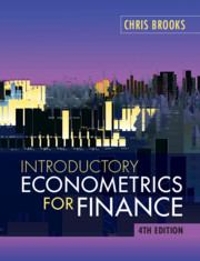

Please read the following opinion article from Minh Tieu, Head of Capital Markets, Vanguard Asia-Pacific about Market Volatility First, the well-worn myth that ETFs are too big, distort the share market and caused increased market volatility. While there's a theory that investors can more easily buy and sell ETFs than they can trade out of positions held in funds, and thus less likely to be disciplined during bouts of market volatility, Vanguard has observed the opposite. Investors in our ETFs tend to hold tight through periods of instability with the vast majority of these investors trading just once a year. The more frequent the trades, the more costs that will be incurred and the less profits that will be returned. While the act of buying and selling ETFs may be relatively simple via an online broker, timing the market to trade is much harder and more likely to lead to losses than not. As Vanguard founder Jack Bogle famously said: "Just because you have the option to trade ETFs, doesn't mean you always should". Further, the overwhelming majority of trades on the Australian stock exchange continue to be equity trades. The average daily traded value of ETFs over the last 12 months is approximately $260 million, a mere 3 per cent of the ASX's $8.7 billion daily traded value. Ultimately, history has shown that there is little correlation between ETF performance and market volatility. As cash flows into ETFs steadily grows, market volatility has on the other hand risen and fallen in a seemingly random pattern, with notable spikes around the tech bubble and the GFC. There is little evidence to suggest that ETFs make markets more unpredictable, particularly during significant market events. Do you think that Mr. Tieau agrees with the material of the lecture notes? Select one: Yes because according to his opinion you should always trade ETFs. O No because some investors do buy and hold ETFs. O Yes because ETFs do not create excess volatility O No because ETFs do not create excess volatility Please read the following opinion article from Minh Tieu, Head of Capital Markets, Vanguard Asia-Pacific about Market Volatility First, the well-worn myth that ETFs are too big, distort the share market and caused increased market volatility. While there's a theory that investors can more easily buy and sell ETFs than they can trade out of positions held in funds, and thus less likely to be disciplined during bouts of market volatility, Vanguard has observed the opposite. Investors in our ETFs tend to hold tight through periods of instability with the vast majority of these investors trading just once a year. The more frequent the trades, the more costs that will be incurred and the less profits that will be returned. While the act of buying and selling ETFs may be relatively simple via an online broker, timing the market to trade is much harder and more likely to lead to losses than not. As Vanguard founder Jack Bogle famously said: "Just because you have the option to trade ETFs, doesn't mean you always should". Further, the overwhelming majority of trades on the Australian stock exchange continue to be equity trades. The average daily traded value of ETFs over the last 12 months is approximately $260 million, a mere 3 per cent of the ASX's $8.7 billion daily traded value. Ultimately, history has shown that there is little correlation between ETF performance and market volatility. As cash flows into ETFs steadily grows, market volatility has on the other hand risen and fallen in a seemingly random pattern, with notable spikes around the tech bubble and the GFC. There is little evidence to suggest that ETFs make markets more unpredictable, particularly during significant market events. Do you think that Mr. Tieau agrees with the material of the lecture notes? Select one: Yes because according to his opinion you should always trade ETFs. O No because some investors do buy and hold ETFs. O Yes because ETFs do not create excess volatility O No because ETFs do not create excess volatility








